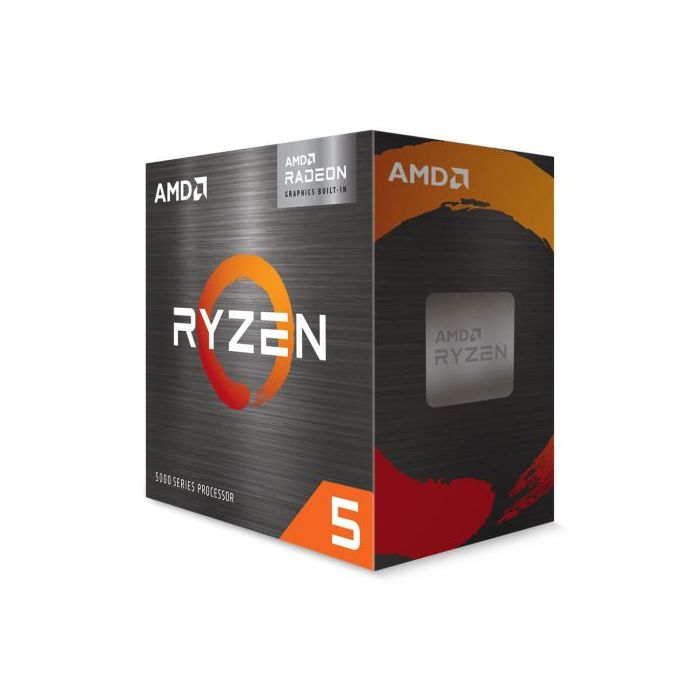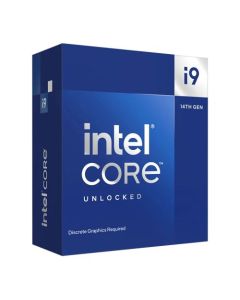How to Check Your PC CPU Temperatures: A Comprehensive Guide
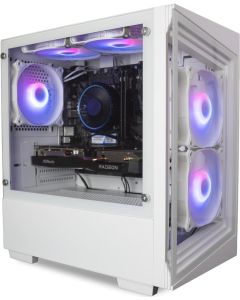
When it comes to gaming or any other demanding task on your PC, keeping a close eye on your CPU temperature control is vital. Overheating can cause your system to slow down, crash, or even permanently damage the hardware. In this guide, we’ll show you how to monitor your CPU temps effectively, explain what constitutes good CPU temperatures, and discuss key components such as the CPU socket and CPU cooler socket. By choosing the right one from PC Gaming Cases, you can enhance your system’s cooling efficiency and ensure your PC stays cool, even under the most intense pressure.
Why Is It Important to Monitor CPU Temperatures?
The CPU (Central Processing Unit) is your computer's brain, and just like any other high-performance component, it generates a significant amount of heat when running at full load. If your CPU temps are too high, your system will not function optimally, and in extreme cases, the CPU can even become damaged. It is where proper cooling and monitoring become crucial.
Keeping your CPU at a safe temperature range ensures that your PC performs well during intensive gaming sessions, video editing, or other heavy tasks. It also helps extend the life of your hardware, preventing premature wear and tear due to excessive heat.
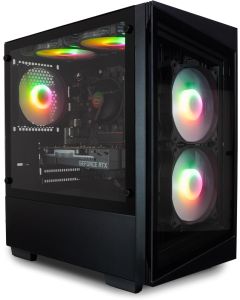
What Are Considered Good CPU Temps?
Before we dive into how to monitor CPU temps, it's important to know what qualifies as good CPU temps. CPU temperatures can vary based on the processor type and your system's cooling solution, but in general:
- Idle temps (when the CPU is not under heavy load) should be between 30°C and 45°C.
- Under load (when gaming or using demanding applications), good CPU temps should typically stay below 80°C. Anything above this can indicate overheating issues.
- Over 90°C is a warning sign of overheating, and if your CPU is running at this temperature for prolonged periods, it's time to investigate your cooling solution.
It's vital to know that temperatures fluctuate between different models of CPUs. For instance, high-end gaming processors and Intel i9 or AMD Ryzen 9 chips may run slightly hotter than mid-range or entry-level CPUs.
Tools to Monitor CPU Temps
To monitor CPU temps accurately, you'll need to use dedicated software. Most modern PCs and laptops come with a BIOS or UEFI firmware that can display basic temperature readings. Still, third-party software will give you more detailed and useful information for real-time monitoring. Here are some of the best options:
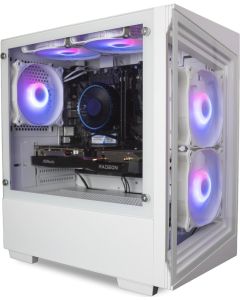
Core Temp
One of the most popular tools for checking CPU temperatures is Core Temp. It's a lightweight software that shows individual core temperatures in real time, making it great for multi-core processors. It works with both Intel and AMD processors and offers various customisation options.
HWMonitor
Another solid choice for monitoring CPU temps is HWMonitor. This software gives you detailed readings of your CPU temperatures, fan speeds, voltages, and even the temperatures of other pc components like your GPU. HWMonitor is easy to use and can be extremely useful if you're looking to track the performance of multiple components.
MSI Afterburner
If you're into gaming or using your PC for graphic-intensive tasks, MSI Afterburner is a fantastic tool for monitoring CPU temperatures, as well as GPU and system memory stats. You can customise the tool to show temperature data on your screen in real-time so that you can keep an eye on your system while gaming.
Speccy
Speccy is another excellent tool for monitoring CPU temperatures. It provides an overview of your system's hardware and gives detailed readings for CPU temperature, along with other important metrics like RAM usage, storage, and motherboard temperatures.
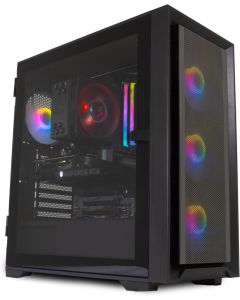
Intel Extreme Tuning Utility (XTU)
For Intel users, the Intel Extreme Tuning Utility (XTU) is a powerful software that not only lets you monitor CPU temps but also offers tools for overclocking. It provides real-time data and detailed logs, making it an essential tool for users looking to optimise their Intel CPUs.
How to Check Your CPU Temperatures in BIOS/UEFI
Before installing any third-party software, you can also check the CPU temperatures in your system's BIOS/UEFI. Here's how to do it:
- Restart your PC and Press a specified key on startup to access BIOS/UEFI settings (commonly Del, F2, or Esc, depending on your motherboard).
- Once you're in the BIOS, navigate to the Hardware Monitor or PC Health tab (this might differ depending on your motherboard brand).
- Under this tab, you'll find the temperature readings for your CPU. It is a useful way to check the temps if you don't want to install any software, though it won't provide real-time monitoring.
Checking CPU Temperature via Your PC Case and CPU Socket
Understanding how your CPU socket and cooling system interact is vital when assessing your PC's cooling performance. The CPU socket is the physical interface on the motherboard where the CPU is installed. Different motherboards may have different types of sockets (e.g., LGA 1200, AM4), and the cooling system should match the socket type for optimal thermal management. At PC Gaming Cases, we emphasise the importance of choosing the right cooling solutions to ensure your system performs at its best.
Most CPUs are equipped with a thermal sensor that directly reports the temperature of the chip, but the CPU cooler socket is also a critical part of this equation. The cooler ensures that the CPU remains within the safe operating temperature by dissipating heat. Depending on the cooler's effectiveness, temperatures can vary widely. When selecting PC Gaming Cases, it's essential to consider the design and airflow options to optimise heat dissipation, keeping your system cool even during extended gaming sessions.
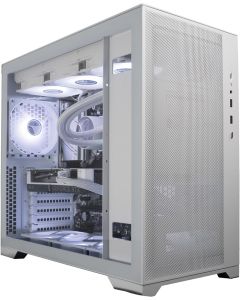
Air Coolers vs. Liquid Coolers
The cooling solution you choose for your CPU temperatures may be significantly affected by the CPU. Air coolers, which use heat sinks and fans, are effective for most systems but can be less efficient than liquid coolers in demanding applications like high-end gaming or video editing. Liquid coolers (AIO coolers) tend to offer better thermal performance, especially for overclocked systems, as they can dissipate heat more efficiently.
If you notice higher than-expected CPU temps, it could be a sign that your cooling system is underperforming or that your CPU cooler socket is improperly seated. Properly applying thermal paste and ensuring that your cooler is correctly installed can go a long way in maintaining good CPU temps.
Improving Your CPU Cooling
If you're consistently seeing high CPU temperatures, here are a few steps you can take to improve cooling:
- Clean Your PC: Dust can clog up fans and coolers, preventing them from dissipating heat effectively. Regular cleaning ensures optimal airflow.
- Upgrade Your CPU Cooler: If you're using stock cooling, upgrading to a high-performance air or liquid cooler can significantly lower your CPU temps.
- Apply High-Quality Thermal Paste: Reapplying thermal paste between the CPU and cooler can improve heat transfer, reducing temperatures.
- Improve Case Airflow: Ensure your PC case has proper airflow by positioning the intake and exhaust fans correctly. A good airflow setup helps expel hot air from the case, keeping your system cool.
- Overclocking Caution: If you're overclocking your CPU, you should expect higher temperatures. Ensure that your cooling solution is adequate to handle the increased heat load.
Conclusion
Monitoring CPU temps is essential to maintaining a stable and high-performing PC, especially for gaming or resource-intensive tasks. By using the right tools and understanding your CPU socket and cooling system, you can easily track and control your CPU temperatures to ensure that your system runs smoothly and efficiently. Always aim for good CPU temps that fall within safe limits, and take the necessary steps to improve your cooling if needed.
If you're considering upgrading your cooling system, look no further than PC Gaming Cases, where we provide a large assortment of cases designed for optimal airflow and advanced cooling solutions. Whether you want liquid or air cooling, we have options that will help you maintain good CPU temps and keep your PC running at its best for years to come.







